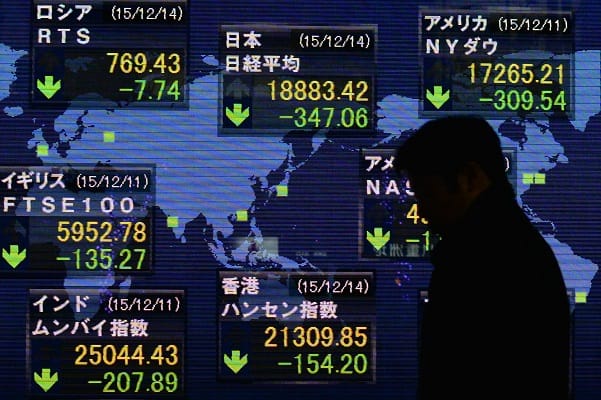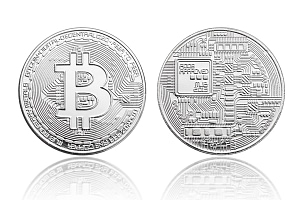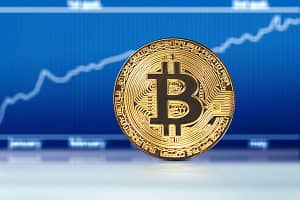The United Arab Emirates, with its bustling trade hubs and financial centers, has become a focal point for forex trading. As the global economy intertwines with digital advancements, understanding the forex landscape in the UAE is crucial for both novice and seasoned traders.
What is the forex market
The forex market, often referred to as the foreign exchange or FX market, stands as a titan in the world of finance. According to a 2022 triennial report from the Bank for International Settlements, the daily global volume for forex trading astonishingly reached $7.5 trillion. This colossal figure not only underscores the market’s vast scale but also its immense liquidity.
Liquidity, in the context of financial markets, refers to the ease with which an asset or security can be quickly bought or sold without causing a significant movement in its price. The high liquidity in the forex market ensures that transactions, even large ones, can be executed almost instantaneously and at a consistent market price. This is a crucial advantage for traders, as it allows for flexibility and the ability to respond swiftly to global economic and geopolitical events.
One of the unique aspects of the forex market is its decentralized nature. Unlike stock markets, which have physical exchanges, forex trading is conducted electronically over-the-counter (OTC). This means that all transactions take place via computer networks among traders across the globe, rather than on a centralized exchange. This decentralized structure contributes to the market’s vast scale and liquidity, as it facilitates continuous trading 24 hours a day, five and a half days a week. Major financial centers such as Frankfurt, Hong Kong, London, New York, and Tokyo play host to these trades, ensuring that the market remains active across different time zones.
Another factor contributing to the forex market’s liquidity is the diversity of its participants. From multinational corporations and hedge funds to individual retail traders, a wide array of players engage in forex trading. While institutional firms and large banks once dominated the market, the advent of online trading platforms and technological advancements has democratized access, allowing individual traders and investors of all sizes to participate.
The sheer variety of currencies available for trading further amplifies the market’s liquidity. Major currency pairs like EUR/USD, GBP/USD, and USD/JPY are among the most traded, but the market also offers a plethora of minor and exotic currency pairs. This diversity ensures that there’s always some level of activity in the market, regardless of the time of day.
However, with great liquidity comes great responsibility. The forex market’s scale and liquidity can be a double-edged sword. On one hand, traders can capitalize on small price movements to generate profits. On the other, the vast amount of capital flowing through the market can lead to rapid and significant price fluctuations. This volatility, especially when combined with high leverage (a common feature in forex trading), can amplify both gains and losses.
Major currencies and the UAE’s position
The U.S. dollar holds a unique position in the world of forex. It’s not just one of the major currencies; it’s the most traded currency globally. The dollar’s dominance is evident in its pairing with almost every major currency, making it a central player in the forex market. This dominance is further underscored by the fact that many countries, including the UAE, peg their currency to the dollar.
For the UAE, the AED/USD currency pair holds significant importance. The UAE dirham (AED) has been pegged to the U.S. dollar since 1997 at a rate of 3.6725 AED to 1 USD. This peg provides a level of economic stability to the UAE, ensuring that its currency isn’t subject to wild fluctuations. However, it also means that any major movement in the U.S. dollar has a direct impact on the UAE’s economy.
The pegging of the dirham to the dollar has several implications:
- Trade Relations: Given that the U.S. is one of the UAE’s major trading partners, the peg helps facilitate smoother trade relations without the complications of fluctuating exchange rates.
- Economic Policy: The peg also means that the UAE’s monetary policy is, to an extent, influenced by the U.S. Federal Reserve’s decisions. When the U.S. adjusts its interest rates, the UAE often follows suit to maintain the peg.
- Investor Confidence: The peg provides a level of predictability and confidence for foreign investors, as they don’t have to worry about currency risk when investing in the UAE.
How to trade forex in the UAE
The United Arab Emirates, particularly Dubai, has emerged as a significant hub for forex trading thanks to its strategic location and investor-friendly environment. It is estimated that 49,000 people traded forex and CFDs in 2023 so far. So, if you’re considering diving into the forex market in the UAE, here’s a comprehensive guide to get you started.
Understanding the forex landscape in Dubai
Dubai boasts one of the largest concentrations of both internationally and locally-based forex brokerages in the Middle East. These UAE forex brokers are regulated by various authorities, ensuring a safe trading environment for investors. The Central Bank of the United Arab Emirates (UAE) regulates local forex brokers, while the Securities and Commodities Authority (SCA) issues their brokerage licenses. Additionally, companies based in the Dubai International Financial Centre (DIFC), a financial-free zone in Dubai, fall under the regulatory purview of the Dubai Financial Services Authority (DFSA).
Starting your forex journey
- Educate yourself: Before diving into forex trading, it’s crucial to equip yourself with the necessary knowledge. Understand trading risks, market analysis, and the intricacies of the forex market. Many online resources, books, and courses are available to help you get started.
- Choose the right broker: Your choice of forex broker can significantly impact your trading experience. According to Investing in the Web, you should consider factors like regulatory oversight, trading platforms offered, customer service, and the broker’s reputation in the market. Dubai offers a mix of local and international brokers, each with its unique offerings.
- Open a trading account: Once you’ve chosen a broker, the next step is to open a trading account. Most brokers offer a straightforward online registration process. You’ll need to provide some personal information and in some cases, financial documents to verify your identity.
- Demo trading: Before committing real money, it’s advisable to practice with a demo account. This allows you to get a feel for the trading platform, test different strategies, and understand the dynamics of the forex market without any financial risk.
- Fund your account: Once you’re comfortable, you can fund your live trading account. Ensure you only invest money that you can afford to lose, given the volatile nature of the forex market.
- Develop a trading strategy: Whether you’re a technical trader relying on charts and indicators or a fundamental trader focusing on economic news and data releases, having a clear strategy is crucial. This will guide your trading decisions and help you navigate the market’s ups and downs.
- Stay updated: The forex market is influenced by various global events, from economic data releases to geopolitical developments. Stay updated with the latest news and trends to make informed trading decisions.
Final thoughts
Forex trading in the UAE has rapidly evolved, positioning itself as a prominent player in the global forex landscape. The nation’s strategic location, coupled with its robust regulatory framework, offers both novice and seasoned traders a conducive environment to navigate the intricate world of forex.
While the opportunities are vast, they come hand-in-hand with challenges, particularly given the market’s inherent volatility. As with any financial endeavor, education, due diligence, and a well-thought-out strategy are paramount. Happy investing!






Leave a Comment